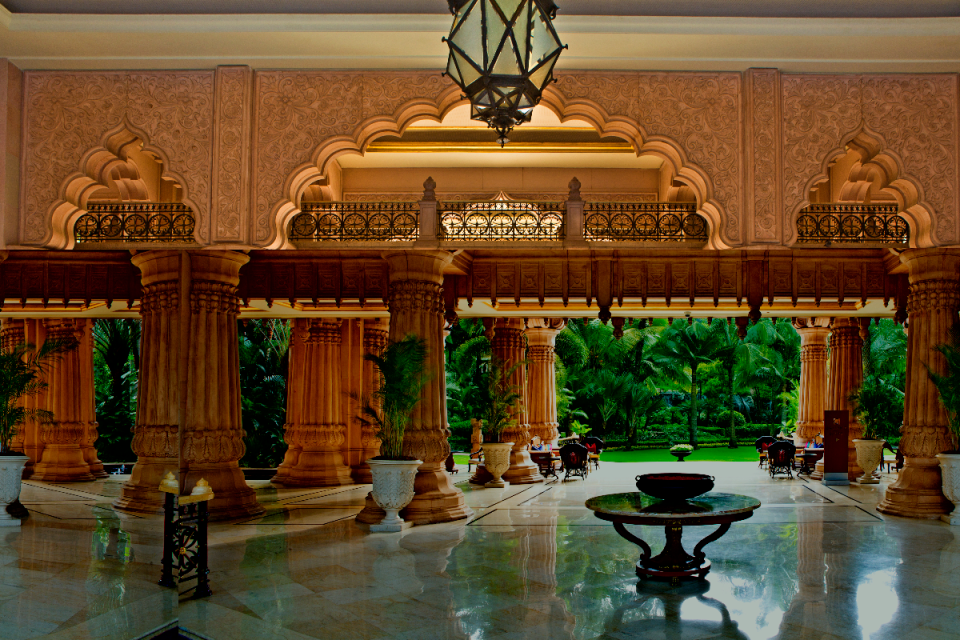Booming Bangalore: India has its own Silicon Valley and Gen Z love it

The Indian city of Bangalore is taking over the business world – and is now served by new daily flights from London, says Siobhan Grogan
Bangalore is booming. Less than a decade after beating Silicon Valley and Shanghai to be named the world’s most dynamic city BY WHO, this sun-baked southern Indian metropolis has never looked back. It’s home to India’s largest number of unicorns (privately-owned startups with a value of over $1billion), is the country’s leading software exporter and was predicted to be the fastest growing city in Asia-Pacific last year, according to Oxford Economics.
Plus, it’s now easier to reach than ever before since Virgin Atlantic launched daily flights from London Heathrow last month to compete with British Airways’ existing service. Air India launches its own route to the city from Gatwick in May.
“The vibe is tech, tech, tech,” says Virgin Atlantic’s CEO Shai Weiss. “Major companies like Amazon, Microsoft and Meta already fly with us and as they grow their presence in India, Bengalaru is a gateway to the whole country.”

Even the city’s airport looks as if it’s been beamed straight in from the future. Its brand-new terminal opened last year and has already been declared one of the world’s most beautiful airports, thanks to its terraced gardens, waterfalls, rattan furnishings and forest of trees suspended from the ceiling.
It’s as easy to find an ornate Hindu temple as an Apple store
Elsewhere, Bangalore – now officially re-named Bengalaru though both are used interchangeably – is youthful, lively and forward-thinking, albeit with rage-inducing traffic congestion. Scooters zip between jams, autorickshaws can be summoned on Uber and you can pay by QR code at even the tiniest market stall, yet Bangalore remains proud of its traditional heritage. The streets are still lined with pushcarts serving up curries from steaming vats, women in jewel-coloured saris go about their day carrying vast sacks of rice on their head and it’s as easy to find an ornate Hindu temple as an Apple store.
“People here are deeply conservative as human beings, but deeply progressive as technologists,” says Biren Ghose, who has lived in the city for more than a decade and is managing director of Technicolor Creative Studios which first brought colour to the screen for Disney in the 1930s. “I started here 14 years ago with a team of 300 and I peaked last year with a team of 7000. We became the world’s number one because we decided to leverage India. There are more silicon chips here than there are pebbles on the beaches of South Asia!”
Throw in more than a dozen tech parks, several aircraft and aerospace organisations and the headquarters of some of India’s largest biotech companies and it’s clear Bangalore means (big) business.
“We’re called the Silicon Valley of India,” says Hemamalini Maiya, managing partner of century-old restaurant business Mavalli Tiffin Rooms, who have franchises around the world including two in London. “The government has policies in place to support and encourage tech companies to come here. So a lot of the Gen Z crowd come to Bangalore to find jobs because there are more here than anywhere else. It’s also very cosmopolitan – I think a new bar or microbrewery opens nearly every day and it’s always packed.”
It has long been known that India in general has been an entrepreneurial destination for businesses. Writing for City A.M., the London Lord Mayor described the country as a “haven” for workers, due to world-leading financial services and “excellence” in small business development. Others think there are clear benefits for the UK working more closely with India on trade opportunities to bolster our economy.

This hipster gloss also makes Bangalore a great place to visit if you prefer cocktails to coding. My hotel, The Leela Palace Bengalaru, is nothing short of palatial, with gleaming marble, a palm court garden with lagoon and gold leaf décor that impressed Rishi Sunak so much, he got married here in 2009. But there’s also a secret speakeasy hidden in the grounds that was recently voted the sixth best bar in India. It’s no wonder Google were hosting a conference in the hotel’s ballroom when I checked in.
However, it’s worth battling the traffic to explore beyond the Leela’s immaculate grounds. I wander through the ornate 18th century summer palace of former ruler Tipu Sultan, carved almost entirely from teak wood, then am blessed by a Hindu priest in the Kote Venkataramana temple. Known as the garden city of India, Bangalore also – thankfully – has plenty of peaceful parks to escape the incessant honking of traffic including Lalbagh Botanical Garden and Cubbon Park, a leafy 300-acre oasis right in the centre of the city’s business district.
In KR Market, cross-legged vendors make garlands from flowers so brightly coloured they barely seem real, while other stalls groan under the weight of fragrant spices, spiky jackfruit and glossy red pomegranates. Nearby Chickpet Market is perfect for souvenir shopping, with shelves of rainbow-hued silk saris, gold jewellery and copper kitchenware for a fraction of the UK price.
Indiranagar is the place to be after dark, with its food trucks, microbreweries and just some of Bangalore’s reputed 3,000 pubs. Ramesgwaram café serves up paper-thin dosa and smoky ghee podi idli, while brewpub Toit offers classic pub dishes and wood-fired pizzas washed down with its own India pale ale.
For something a little more formal, book a table under the tamarind trees in the garden at Karavali to feast on cashew and coriander fritters, melt-in-the-mouth prawn biriyani and hot, buttery roti.
Never mind a world-leading tech hub: I’d move here just for the food.
Visit Bangalore yourself
Flights from London Heathrow to Bengalaru with Virgin Atlantic start from £495 return in Economy Light. Book at virginatlantic.com. Rooms at The Leela Palace Bengalaru start from £215. Book at theleela.com/the-leela-palace-bengaluru